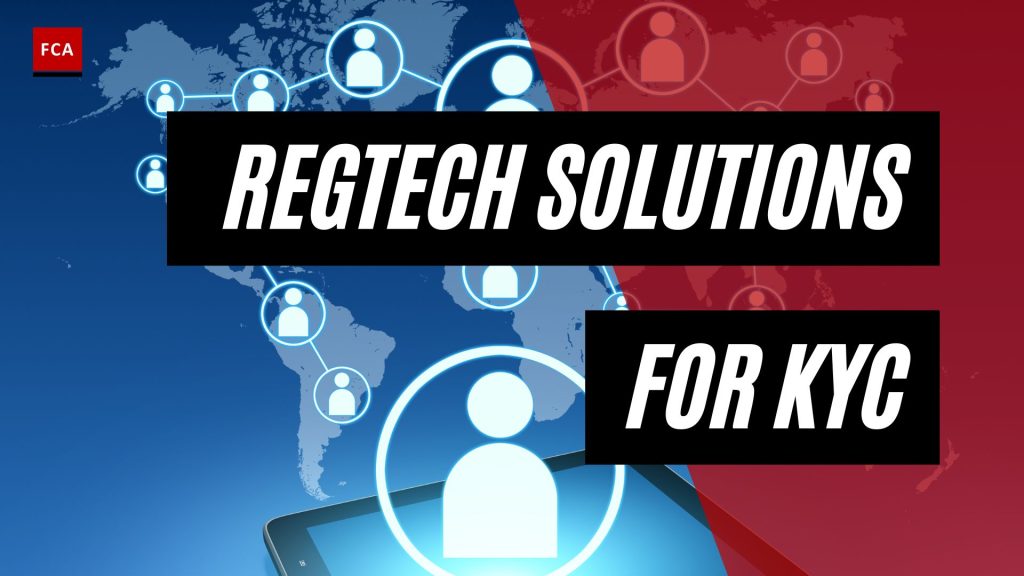Understanding RegTech Solutions
Regulatory Technology, commonly known as RegTech, refers to the use of technology-driven solutions to streamline and enhance regulatory compliance processes. In the context of Anti-Money Laundering (AML) compliance, RegTech plays a crucial role in helping businesses detect and prevent financial crimes such as money laundering.
Introduction to RegTech
RegTech solutions leverage advanced technologies such as artificial intelligence (AI), machine learning (ML), and data analytics to automate and optimize compliance procedures. These technologies enable organizations to efficiently manage the increasing complexities of regulatory requirements, saving time and resources while ensuring adherence to AML regulations.
By automating manual tasks, enhancing data analysis capabilities, and providing real-time monitoring, RegTech solutions enable businesses to stay ahead of evolving AML regulations and mitigate the risk of financial crime. According to Sanction Scanner, RegTech solutions can help automate Know Your Customer (KYC) and AML compliance processes, improving efficiency and accuracy.
Role of RegTech in AML Compliance
RegTech solutions play a significant role in strengthening AML compliance efforts. They enable organizations to streamline customer onboarding processes, reduce manual workloads, and enhance risk assessments.
Streamlining Customer Onboarding
RegTech solutions offer automated workflows and digital platforms that accelerate the customer onboarding process. By leveraging technologies such as AI and ML, these solutions can efficiently verify customer identities, perform risk assessments, and ensure compliance with AML regulations. This streamlined onboarding process not only saves time but also enhances the overall customer experience.
Reducing Manual Workloads
Manual AML compliance processes can be time-consuming and prone to human error. RegTech solutions automate various compliance tasks, such as data collection, verification, and monitoring, reducing the reliance on manual efforts. This automation not only improves accuracy but also frees up compliance professionals to focus on higher-value activities.
Enhancing Risk Assessments
RegTech solutions leverage advanced data analytics and machine learning algorithms to analyze vast amounts of data in real-time. By identifying patterns, anomalies, and potential risks, these solutions enable organizations to enhance their risk assessment capabilities. Prompt detection of suspicious activity is crucial in preventing money laundering and other financial crimes.
RegTech solutions have emerged as powerful tools in the fight against financial crime. They enable organizations to automate compliance processes, enhance risk assessments, and ensure adherence to AML regulations. In the next sections, we will explore the specific benefits and implementation of RegTech solutions for KYC compliance.
Benefits of RegTech for KYC
Regulatory Technology (RegTech) solutions offer numerous benefits for Know Your Customer (KYC) processes in the financial industry. These solutions focus on streamlining customer onboarding, reducing manual workloads, and enhancing risk assessments, ultimately improving compliance with regulatory requirements.
Streamlining Customer Onboarding
RegTech solutions aim to simplify and expedite the customer onboarding process. By leveraging automation and digitalization, these solutions help financial institutions comply with regulations and digitally transform customer due diligence practices (Regula Forensics).
Automation tools integrated into regtech solutions reduce the time needed to verify customer information, minimize human error, and increase the accuracy of risk assessments (Regula Forensics). This streamlining of customer onboarding not only improves operational efficiency but also provides a more seamless experience for customers.
Reducing Manual Workloads
One of the significant advantages of employing RegTech solutions for KYC is the reduction in manual workloads. These solutions automate repetitive and time-consuming tasks, such as data entry and document verification, allowing compliance professionals to focus on more complex and value-added activities (Regula Forensics).
By reducing manual workloads, RegTech solutions increase operational efficiency and enable compliance teams to handle larger volumes of customer data without compromising accuracy or compliance standards. This, in turn, leads to cost savings and improved productivity for financial institutions.
Enhancing Risk Assessments
RegTech solutions play a crucial role in enhancing risk assessments during the KYC process. By leveraging advanced data analytics, these solutions provide a more comprehensive and accurate understanding of customer risk profiles (ScienceDirect).
Through the analysis of various data sources, including customer information, transaction history, and external risk databases, regtech solutions help identify potential red flags and suspicious activities. This enhanced risk assessment capability enables financial institutions to make informed decisions and take appropriate measures to mitigate risks associated with money laundering and financial crime.
In summary, regtech solutions offer significant benefits for KYC processes in the financial industry. By streamlining customer onboarding, reducing manual workloads, and enhancing risk assessments, these solutions enable financial institutions to comply with regulatory requirements more efficiently and effectively. Furthermore, the implementation of regtech solutions leads to cost savings, improved productivity, and a more seamless customer experience.
Implementation of RegTech Solutions
To streamline the Know Your Customer (KYC) process and enhance compliance with Anti-Money Laundering (AML) regulations, financial institutions are increasingly turning to RegTech solutions. These technologies offer a range of capabilities that improve efficiency, reduce manual workloads, and enhance overall compliance. In this section, we will explore three key aspects of implementing RegTech solutions for KYC: real-time monitoring capabilities, transaction monitoring and alerts, and cost savings and efficiency.
Real-Time Monitoring Capabilities
RegTech solutions provide financial institutions with real-time monitoring capabilities, allowing them to detect and respond to potential risks and suspicious activities promptly. These solutions leverage advanced technologies such as artificial intelligence (AI) and machine learning (ML) to analyze vast amounts of data and identify anomalies in customer behavior or transactions. By continuously monitoring customer activities, financial institutions can proactively identify and address potential compliance issues.
Real-time monitoring enables institutions to stay ahead of emerging risks and regulatory changes, helping them maintain compliance with AML regulations. It also allows for prompt action to be taken in response to suspicious activities, minimizing the impact of financial crimes. By automating monitoring processes, RegTech solutions reduce the reliance on manual reviews, saving time and resources while improving the effectiveness of compliance efforts.
Transaction Monitoring and Alerts
Transaction monitoring is a critical component of KYC compliance, and RegTech solutions offer advanced capabilities in this area. These solutions can automatically analyze transactions in real-time, identify patterns, and flag potentially suspicious activities. By setting up predefined rules and algorithms, financial institutions can customize the system to suit their specific risk profiles and compliance requirements.
RegTech solutions provide alerts and notifications when a transaction meets certain criteria, such as exceeding a predefined threshold or exhibiting unusual patterns. These alerts enable institutions to investigate and take appropriate action promptly. By automating transaction monitoring and alerts, financial institutions can significantly reduce the manual workload associated with reviewing large volumes of transactions, improving efficiency and accuracy in compliance operations.
Cost Savings and Efficiency
Implementing RegTech solutions for KYC compliance can lead to significant cost savings and improved operational efficiency. By automating manual processes and leveraging advanced technologies, financial institutions can reduce the need for extensive manual reviews, resulting in time and resource savings. According to Sanction Scanner, RegTech solutions can reduce the time spent on KYC processes by up to 80%.
In addition to time savings, RegTech solutions help minimize the risk of human error, ensuring accuracy and consistency in compliance operations. By streamlining KYC processes, institutions can onboard customers more efficiently, enhancing the overall customer experience. These efficiencies translate to cost savings for financial institutions, allowing them to allocate resources to other critical areas of their business.
By leveraging the real-time monitoring capabilities, transaction monitoring and alerts, and cost savings and efficiency offered by RegTech solutions, financial institutions can enhance their KYC compliance processes. These technologies not only assist institutions in meeting AML regulations but also provide them with a competitive advantage in the market. As the financial industry continues to evolve, RegTech solutions will play an increasingly vital role in helping institutions navigate the complex landscape of KYC and AML compliance.
The Importance of RegTech in the Financial Industry
Regulatory Technology, or RegTech, has become increasingly important in the financial industry, particularly in the realm of Anti-Money Laundering (AML) compliance. RegTech solutions play a vital role in helping financial institutions comply with AML regulations, mitigate the risk of financial crime, and improve overall regulatory compliance.
Compliance with AML Regulations
Regulatory compliance is a top priority for financial institutions. AML regulations are designed to prevent money laundering, terrorist financing, and other financial crimes. Implementing effective AML controls and processes is crucial to avoid penalties and reputational damage.
RegTech solutions offer a range of tools and technologies that aid in compliance with AML regulations. These solutions automate various aspects of the compliance process, such as customer due diligence, transaction monitoring, and suspicious activity reporting. By leveraging advanced technologies, financial institutions can enhance their AML compliance efforts and ensure adherence to regulatory requirements.
Mitigating the Risk of Financial Crime
Financial institutions face significant risks associated with financial crime, including money laundering, fraud, and terrorist financing. RegTech solutions provide valuable resources to mitigate these risks by enabling real-time monitoring, automated data collection, and risk assessment.
Real-time monitoring capabilities allow financial institutions to detect and respond to suspicious activities promptly. Through the use of sophisticated algorithms and machine learning, RegTech solutions can analyze large volumes of data, identify patterns, and generate alerts for potential money laundering or other illicit activities.
By automating data collection and risk assessment processes, RegTech solutions streamline the identification of high-risk customers and transactions. This helps financial institutions allocate their resources more effectively and focus their efforts on investigating and mitigating the most significant risks.
Improving Regulatory Compliance
Regulatory compliance is a complex and ever-evolving challenge for financial institutions. Keeping up with changing regulations and ensuring compliance across multiple jurisdictions can be time-consuming and resource-intensive. RegTech solutions offer innovative approaches to address these challenges and improve regulatory compliance.
Through automation and digitalization, RegTech solutions enable financial institutions to streamline their compliance processes. By automating manual tasks and workflows, institutions can reduce errors and improve the efficiency of their compliance operations. This allows compliance teams to allocate their time and resources more effectively, focusing on higher-value activities such as risk analysis and investigations.
Advanced data analytics capabilities provided by RegTech solutions help financial institutions gain deeper insights into customer behavior and transaction patterns. This enhanced understanding allows institutions to identify potential risks and take proactive measures to address them. By leveraging data-driven insights, financial institutions can make more informed decisions, improve compliance outcomes, and strengthen their overall regulatory posture.
In conclusion, RegTech solutions play a crucial role in the financial industry by facilitating AML compliance, mitigating the risk of financial crime, and improving regulatory compliance. By leveraging these technologies, financial institutions can enhance their ability to meet regulatory requirements, protect themselves and their customers from financial crime, and operate with greater efficiency and confidence in the complex regulatory landscape.
Key Features of RegTech Solutions for KYC
RegTech solutions for KYC (Know Your Customer) offer a range of key features that help streamline compliance processes, enhance efficiency, and ensure adherence to regulatory requirements. These features include automation and digitalization, advanced data analytics, and ID document verification.
Automation and Digitalization
One of the primary advantages of RegTech solutions for KYC is their ability to automate and digitize customer onboarding processes. By leveraging automation tools and technologies, these solutions reduce the time required to verify customer information, minimize human error, and increase the accuracy of risk assessments (Regula Forensics).
The automation of KYC processes allows financial institutions to streamline the collection and verification of customer data, ensuring compliance with regulatory standards. Automation tools integrated into RegTech solutions offer benefits such as faster onboarding, improved customer experience, and enhanced efficiency in compliance checks (Regula Forensics). This not only saves time but also enables organizations to allocate resources more effectively, focusing on higher-value tasks.
Advanced Data Analytics
RegTech solutions for KYC leverage advanced data analytics capabilities to enhance compliance functions. These solutions analyze large volumes of customer data, identifying patterns, trends, and anomalies that may indicate potential risks. By applying machine learning algorithms and artificial intelligence, RegTech solutions can identify suspicious activity more accurately and efficiently (KYC-Chain).
The use of advanced data analytics in RegTech solutions enables financial institutions to conduct comprehensive risk assessments, ensuring compliance with evolving AML (Anti-Money Laundering) regulations and guidelines. It allows for the continuous monitoring of customer behavior, timely detection of unusual transactions, and prompt alert generation for suspicious activity (KYC-Chain).
ID Document Verification
ID document verification is a critical component of KYC processes, and RegTech solutions excel in this area. These solutions employ AI (Artificial Intelligence) and ML (Machine Learning) technologies to streamline the ID verification process, ensuring compliance with local and international regulations. They verify various ID documents, detect alterations or modifications, and authenticate IDs against national identity registries (KYC-Chain).
By automating the ID document verification process, RegTech solutions enhance accuracy, reduce manual errors, and expedite customer onboarding. They play a vital role in preventing identity fraud and ensuring the authenticity of customer identities, creating a robust and secure KYC framework.
RegTech solutions for KYC offer a range of features that not only simplify customer onboarding but also enhance compliance throughout the customer lifecycle. Through automation, advanced data analytics, and ID document verification, financial institutions can improve efficiency, mitigate risks, and ensure compliance with regulatory requirements. These technologies have become essential tools for organizations aiming to streamline their compliance processes and safeguard against financial crime.
Challenges and Solutions in KYC Compliance
The implementation of Know Your Customer (KYC) procedures presents a range of challenges for financial institutions. These challenges include a shortage of skilled personnel, the need to streamline KYC processes, and the long-term cost reduction associated with compliance efforts. However, these challenges can be effectively addressed through the adoption of regtech solutions designed to enhance efficiency and accuracy in KYC compliance.
Shortage of Skilled Personnel
Financial institutions often face a shortage of skilled personnel when it comes to KYC compliance. This shortage can lead to backlogs in Customer Due Diligence (CDD) reviews, creating bottlenecks and delays in the onboarding process. According to a study conducted by KPMG, approximately 15% of the total workforce of the four largest Dutch banks is involved in KYC and compliance activities, with this percentage having increased over time (LinkedIn).
To address the shortage of skilled personnel, financial institutions are exploring solutions such as outsourcing and calling in CDD remediation support. However, these approaches can be costly and may not provide a sustainable long-term solution. Instead, financial institutions are recognizing the need to leverage AML technology trends and digital solutions to streamline the KYC process (LinkedIn). By automating manual and low-skilled KYC work through AML compliance software and AML automation tools, financial institutions can optimize their resources and focus their skilled personnel on high-value tasks.
Streamlining KYC Processes
The KYC process can be complex and time-consuming, often involving multiple manual steps and extensive documentation requirements. This can result in inefficiencies, delays, and increased costs for financial institutions. To address these challenges, financial institutions are turning to regtech platforms for AML to streamline the KYC process.
By leveraging automation and digitalization, financial institutions can significantly reduce the manual workload associated with KYC compliance. Smart digital solutions can automate data collection, verification, and risk assessment processes, allowing for faster and more accurate KYC reviews. This helps to expedite the customer onboarding process while maintaining compliance with regulatory requirements.
Long-Term Cost Reduction
Compliance with KYC regulations can be costly for financial institutions. The shortage of skilled personnel, manual processes, and extensive documentation requirements contribute to increased operational costs. To achieve long-term cost reduction, financial institutions are embracing regtech compliance solutions that leverage advanced technologies.
While the initial capital expenditure for implementing regtech solutions may be higher, the long-term benefits outweigh the costs. Digital innovations such as advanced data analytics and ID document verification help financial institutions optimize their compliance efforts, reduce operational costs, and mitigate the risk of penalties for non-compliance. By streamlining KYC processes and enhancing risk assessments, financial institutions can achieve greater efficiency and effectiveness in their KYC compliance operations.
Addressing the challenges of a shortage of skilled personnel, streamlining KYC processes, and achieving long-term cost reduction requires financial institutions to embrace regtech solutions that leverage automation, digitalization, and advanced analytics. By adopting these solutions, financial institutions can enhance their KYC compliance efforts, reduce operational costs, and improve their overall risk management practices.
RegTech Solutions for AML Compliance
Regulatory Technology (RegTech) solutions offer a range of capabilities to enhance Anti-Money Laundering (AML) compliance efforts. By leveraging advanced analytics, machine learning algorithms, and ongoing monitoring capabilities, RegTech plays a crucial role in AML programs, aiding in the detection and prevention of money laundering and suspicious activities.
Role of RegTech in AML Programs
RegTech solutions, as highlighted by KYC-Chain, enable organizations to promptly identify suspicious activity or potential money laundering attempts. With the help of automated data collection and risk assessment, RegTech empowers businesses to take appropriate actions and ensure compliance with local and international regulations.
Automated Data Collection and Risk Assessment
One of the key features of RegTech solutions for AML compliance is the ability to automate data collection and risk assessment processes. These tools streamline the collection of relevant customer information, including identity verification, transactional data, and other risk-related factors. By automating these processes, organizations can improve efficiency, accuracy, and cost-effectiveness in their KYC (Know Your Customer) operations.
Prompt Detection of Suspicious Activity
RegTech solutions employ advanced analytics and machine learning to identify patterns, trends, and anomalies in customer behavior and transactional data. By constantly monitoring and analyzing these factors, RegTech tools can quickly detect suspicious activity or potential money laundering attempts. Prompt detection enables organizations to take immediate action and report any suspicious transactions as required by AML regulations.
The role of RegTech in AML compliance goes beyond data collection and risk assessment. It encompasses a range of capabilities, including real-time monitoring, transaction monitoring, and automated alerts. These features enable organizations to stay vigilant and respond effectively to potential risks.
As the financial industry continues to face evolving AML regulations and the need for robust compliance measures, RegTech solutions provide a valuable resource to enhance detection, prevention, and reporting of money laundering activities. By leveraging the power of automation, advanced data analytics, and ID document verification, RegTech solutions contribute to the overall effectiveness of AML programs and help organizations stay ahead of the ever-changing landscape of financial crime.
For more information on the role of RegTech in AML compliance and its impact on the financial industry, continue reading our article or explore related topics such as regtech compliance solutions and aml technology providers.
RegTech Use Cases in the Financial Industry
Regulatory Technology (RegTech) solutions have gained significant traction in the financial industry, offering innovative ways to address compliance challenges. Within the realm of Know Your Customer (KYC) processes, RegTech solutions have proven particularly impactful. Let’s explore some key use cases of RegTech in the financial industry.
Identity Verification and Management
Identity verification and management is a critical use case of RegTech in the financial sector. RegTech software facilitates the collection, storage, and verification of personal information using KYC (Know Your Customer) and KYB (Know Your Business) procedures. These solutions ensure that financial institutions are dealing with real individuals and legitimate businesses.
Advanced methods, such as comparing real images of individuals to government-issued documents, provide additional security measures. By leveraging artificial intelligence and machine learning algorithms, RegTech solutions offer efficient and reliable identity verification processes. This helps to mitigate the risk of fraud and ensures compliance with regulatory requirements.
Regulatory Compliance and Change Management
Regulatory compliance and change management are essential considerations for financial institutions. Staying up to date with changing regulations, especially across multiple jurisdictions or with multiple product lines, can be a complex task. This is where RegTech tools play a crucial role.
RegTech solutions provide real-time updates on regulatory changes, helping financial institutions proactively adapt their compliance practices. These tools enable organizations to monitor and interpret regulatory requirements, facilitating a faster reaction time to avoid violations. By automating compliance processes, RegTech solutions streamline regulatory compliance and change management, reducing the risk of non-compliance and associated penalties.
Regulatory Reporting and Case Management
Regulatory reporting and case management pose significant challenges for financial institutions. The process of gathering, organizing, and reporting regulatory data can be time-consuming and prone to errors. RegTech solutions offer efficient and accurate solutions to tackle these challenges.
RegTech software can store and present regulatory data in various formats, easing the compliance process and reducing operational costs. By automating the reporting process, financial institutions can streamline their regulatory reporting obligations, ensuring accurate and timely submissions. Additionally, RegTech solutions provide advanced case management functionalities, enabling organizations to efficiently handle and track compliance-related incidents or investigations.
By leveraging RegTech solutions, financial institutions can enhance their compliance efforts, mitigate the risk of financial crime, and improve overall regulatory compliance. These use cases demonstrate the transformative potential of RegTech in the financial industry, enabling organizations to navigate the complex regulatory landscape with greater efficiency and effectiveness.
Enhancing Fraud Prevention with RegTech
To bolster fraud prevention efforts, Regulatory Technology (RegTech) solutions offer a range of functionalities that aid in risk analysis and management, transaction monitoring and screening, as well as AML compliance and fraud detection.
Risk Analysis and Management
RegTech solutions play a pivotal role in fraud prevention by enabling risk analysis and management. Leveraging advanced analytics and machine learning algorithms, these solutions analyze historical data to identify warning signs and predict potential outcomes, including fraudulent activity. With continuous monitoring provided by RegTech tools, businesses can maintain vigilance without requiring additional resources or manual management. By swiftly detecting and mitigating risks, organizations can proactively address potential threats to their operations and safeguard against financial loss.
Transaction Monitoring and Screening
Transaction monitoring and screening are crucial components of fraud prevention, and RegTech solutions excel in these areas. By utilizing automated monitoring capabilities, these solutions provide real-time fraud prevention and early detection. RegTech tools enable businesses to customize alert thresholds based on regulatory requirements, ensuring compliance while effectively identifying and preventing suspicious activity. Through proactive transaction monitoring and screening, organizations can minimize the risk of financial crime and protect their reputation.
AML Compliance and Fraud Detection
In the financial sector, AML compliance and fraud detection are of paramount importance due to the significant fines and penalties associated with non-compliance. RegTech solutions and AML technology streamline the investigation process, reduce false positives, and provide necessary data upfront, saving time and resources. These solutions play a crucial role in ensuring compliance with AML regulations, enabling organizations to meet their obligations while effectively detecting and preventing fraudulent activities. By leveraging RegTech tools, businesses can safeguard against financial crime, protect their operations, and maintain the trust of their stakeholders.
RegTech solutions are instrumental in enhancing fraud prevention efforts, providing businesses with the necessary tools to identify and mitigate risks, monitor transactions in real-time, and ensure compliance with AML regulations. By adopting these technologies, organizations can stay ahead of evolving fraud risks, protect their customers, and maintain a secure and trusted financial environment. For more information on RegTech and its applications, explore our article on regulatory technology platforms for AML.
The Future of RegTech in KYC and AML Compliance
As the financial industry continues to adapt to evolving regulatory landscapes, the importance of RegTech solutions for Know Your Customer (KYC) and Anti-Money Laundering (AML) compliance is growing. RegTech offers advanced technologies and automation capabilities that streamline compliance processes, enhance risk assessments, and protect businesses and customers.
Growing Importance of RegTech
RegTech solutions have experienced steady growth in the global market since 2015, becoming popular among financial institutions due to increasing obligations for compliance with regulations and audits. These solutions provide assistance with compliance and monitoring capabilities to ensure adherence to regulatory requirements. The ability of RegTech to automate and streamline KYC and AML compliance efforts is crucial for the detection and prevention of financial crimes like money laundering (Sanction Scanner).
Advancements in Technology
RegTech leverages advancements in technology, such as artificial intelligence (AI), machine learning (ML), and data analytics, to revolutionize KYC and AML compliance processes. These technologies enable automated data collection, risk assessment, and prompt detection of suspicious activities. RegTech platforms utilize AI and ML to optimize ID document verification, ensuring accuracy and compliance with regulatory standards (KYC-Chain). By harnessing these advancements, RegTech solutions enhance efficiency, accuracy, and cost-effectiveness in KYC and AML compliance operations.
Protecting Businesses and Customers
The primary goal of RegTech solutions is to protect businesses and customers by mitigating the risk of financial crimes. RegTech tools offer real-time monitoring capabilities, transaction monitoring, and alerts, enabling organizations to promptly identify and address suspicious activities or potential money laundering attempts (KYC-Chain). These solutions play a vital role in ensuring compliance with AML regulations, improving regulatory compliance, and enhancing fraud prevention measures.
By leveraging the power of RegTech, businesses can streamline their compliance processes, reduce manual workloads, and enhance risk assessments. The future of RegTech in KYC and AML compliance is promising, as it continues to evolve with advancements in technology and provides innovative solutions for the financial industry. Embracing RegTech solutions is essential for staying ahead in a rapidly changing regulatory landscape and ensuring the integrity of financial systems.









